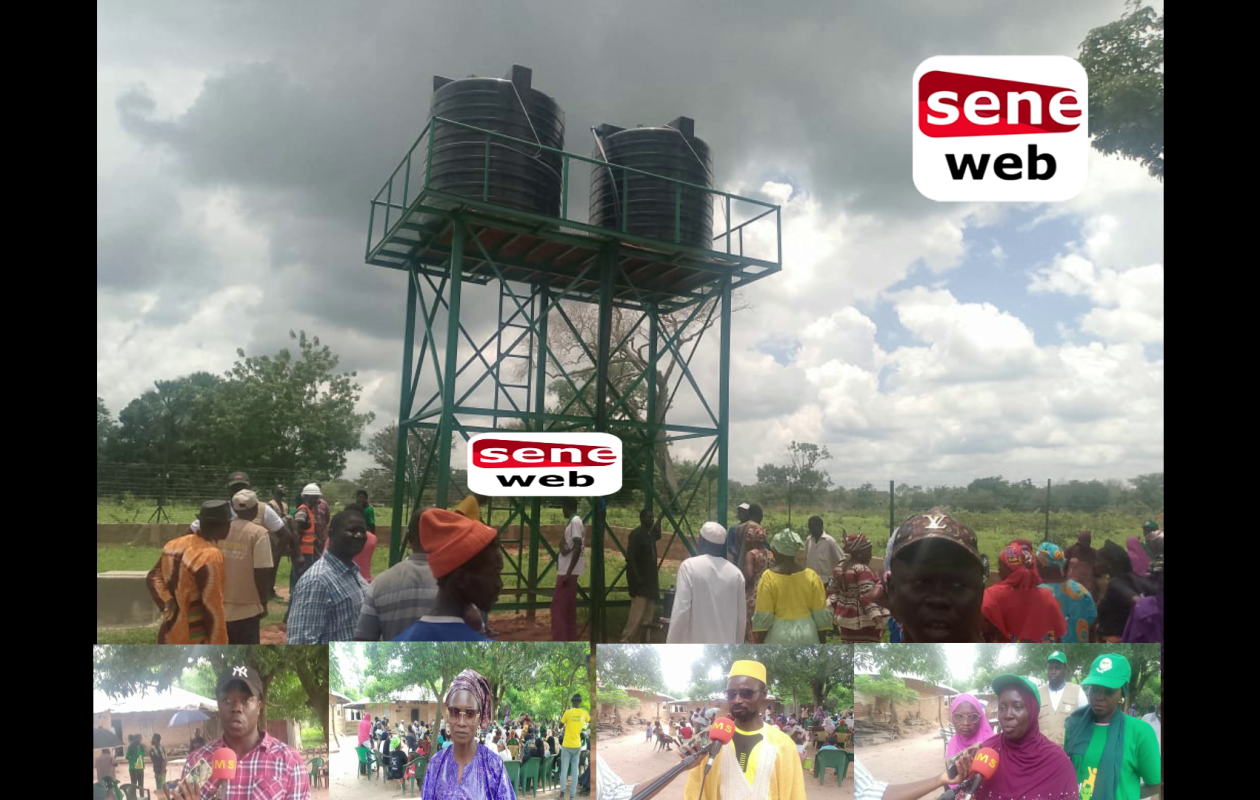
Bignona : Fin du calvaire des populations de Niallé, Kaboungoutte et Djiral pour l’accès à l’eau potable
In the commune of Djibidione, Bignona department, three villages affected by the consequences of the Casamance crisis—Djiral, Kaboungoutte, and Niallé—now benefit from easy access to drinking water. Thanks to the support of Spanish partners, notably Cooperació Valencia, the Regional Committee of Women's Solidarity for Peace in Casamance (USOFORAL) has drilled three mini-boreholes in these communities.
This initiative is fully in line with the Senegalese government's policy aimed at facilitating the return of displaced populations, within the framework of the Diomaye Plan for Casamance, through the "Kassumaye" project (peace in Diola).
A response to the Diomaye Plan for Casamance
Access to drinking water, essential to the lives of the population, is at the heart of this program led by USOFORAL. According to members of the board of directors and the executive committee, this action supports the government's efforts to encourage the mass return of the population of Djibidione, many of whom have taken refuge in neighboring Gambia due to the crisis.
For years, the residents of Djiral, Kaboungoutte, and Niallé suffered from limited access to drinking water, relying on deep, unsafe, and often unfit wells. Women, in particular, had to travel long distances to fetch water from more than 30 meters deep. Today, these mini-boreholes put an end to this ordeal. However, choosing these three villages from among the 59 in the commune of Djibidione, where the need for drinking water is acute, was not easy, given the widespread nature of the problem.
A relief for the population, especially women
Mame Ngom Faye, Secretary General of the USOFORAL Board of Directors, emphasized the importance of these structures in meeting the high demand for water. “These populations were in urgent need of water, and this is now a reality,” she said. She added that access to water, food self-sufficiency, and the construction of basic social infrastructure are essential to consolidating peace and encouraging the return of displaced people. “These structures are fully in line with the Diomaye Plan for Casamance,” she said, recalling that USOFORAL is a member of the regional committee for this plan.
Mariétou Coly, president of the women's federation of the commune of Djibidione, expressed her satisfaction: "Many villages lack drinking water. Thanks to USOFORAL, our women, who were struggling to get it, now have relief." She emphasized that these mini-boreholes will ease the burden on women's domestic chores and allow them to devote themselves to activities such as market gardening. Furthermore, access to clean water will reduce diseases linked to the consumption of unsafe water. "These unsafe wells exposed us to many diseases. With these mini-boreholes, these risks will decrease, and the populations' potential will increase," she added.
Djibidione's second deputy mayor, Souleymane Mbacké Badji, confirmed that access to drinking water remains a major challenge for the municipality. "Our budget does not allow us to fully meet water needs. Priorities go to hospitals and schools. In many villages, returning populations find boreholes out of service or unusable wells. These mini-boreholes, with their extension systems, prevent residents from traveling long distances or going days without water," he explained, welcoming USOFORAL's intervention.
A positive assessment of the works
Accepted in the presence of USOFORAL members, the deputy mayor, and other stakeholders, the mini-boreholes were assessed by Edmond Adioye, environmental engineer and head of the Ziguinchor Regional Hydraulics, Wells, and Boreholes Division. He praised the quality of these achievements, which he considered "98% perfect." According to him, these structures strengthen access to drinking water, a dream for all of Senegal, particularly in rural areas. "Supplying water to homes, schools, and public places like mosques should no longer be a problem," he said.
This initiative should encourage the return of Senegalese refugees to Gambia due to the crisis, allowing them to fully experience their "Senegal" in villages that are now better equipped.
Commentaires (0)
Participer à la Discussion
Règles de la communauté :
💡 Astuce : Utilisez des emojis depuis votre téléphone ou le module emoji ci-dessous. Cliquez sur GIF pour ajouter un GIF animé. Collez un lien X/Twitter, TikTok ou Instagram pour l'afficher automatiquement.